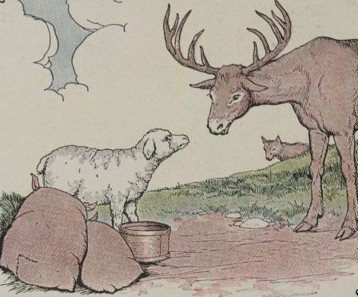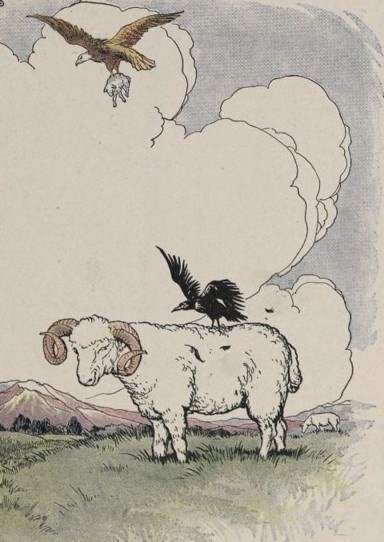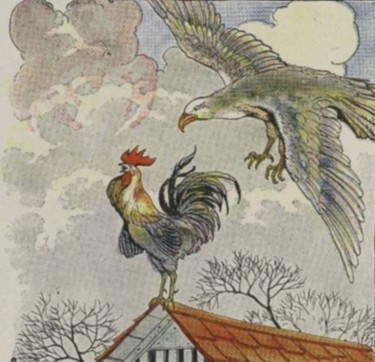| 1. mole | /mohl/ |
| -a small mammal that is almost blind, has dark fur, and lives in passages that it digs underground | |
| It was the first time the child has ever seen a mole up close. | |
| 2. conceit | /kuhn-SEET/ |
| -the state of being too proud of yourself and your actions | |
| There was so much conceit in his voice. | |
| 3. frankincense | /FRANG-kin-sens/ |
| -a thick sticky liquid that produces a sweet smell when burned and comes from a tree that grows in East Africa and Asia | |
| Frankincense is also used in traditional medicine. | |
| 4. peer | /peer/ |
| -to look carefully or with difficulty | |
| We peered through the window to check if there was anyone inside. | |
| 5. pebble | /PEB-uhl/ |
| -a small smooth round stone, especially one found on a beach or in a river | |
| The children are throwing pebbles into the pond. |
“Why, Mother, you said I was blind! But I am sure I can see!”
Mother Mole saw she would have to get such conceit out of his head. So she put a bit of frankincense before him and asked him to tell what it was.
The little Mole peered at it.
“Why, that’s a pebble!”
“Well, my son, that proves you’ve lost your sense of smell as well as being blind.”
Boast of one thing and you will be found lacking in that and a few other things as well.
| 1. | What did the Mole say to his Mother? |
| 2. | Why did the Mole’s mother put frankincense in front of him? |
| 3. | What was the Mole’s answer? |
| 1. | How will you describe the Mole in the story? |
| 2. | If you were the Mole’s mother, would you also teach him a lesson? Explain your answer. |
| 3. | Why did the Mole try so hard to cover his flaw than accept it? |
| 4. | How do you deal with boastful people? |
| 5. | Do you remember any personal experience similar to the story? Please share. |
| Grammar 文法 |
Pronunciation 発音 | Vocabulary 単語 |
Comprehension 理解 |
|
|---|---|---|---|---|
 GOOD GOOD |
文法の誤りはほとんどなく、完全な文章で話すことができる | ほとんどの単語をはっきりと正しく発音することができる | 習った表現を適切に使うことができる | 文章を理解し、質問に正しく答えることができる |
 FAIR |
文法の誤りはあるが、完全な文章で話すことができる | 発音の練習が必要な言葉がいくつかある | たまにミスはあるが、習った表現を適切に使うことができる | 文章を完全に理解するのは難しく、質問に正しく答えられないときもある |
 POOR |
文章で話すのは難しく、単語だけで話すことができる | 発音の練習が必要である | 習った単語と表現を少しだけ使うことができる | 文章を理解するのは難しく、質問に答えるのは難しい |
An eBook from The Project Gutenberg.
This eBook is for the use of anyone anywhere at no cost and with almost no restrictions whatsoever. You may copy it, give it away or re-use it under the terms of the Project Gutenberg License included with this eBook or online at www.gutenberg.org







